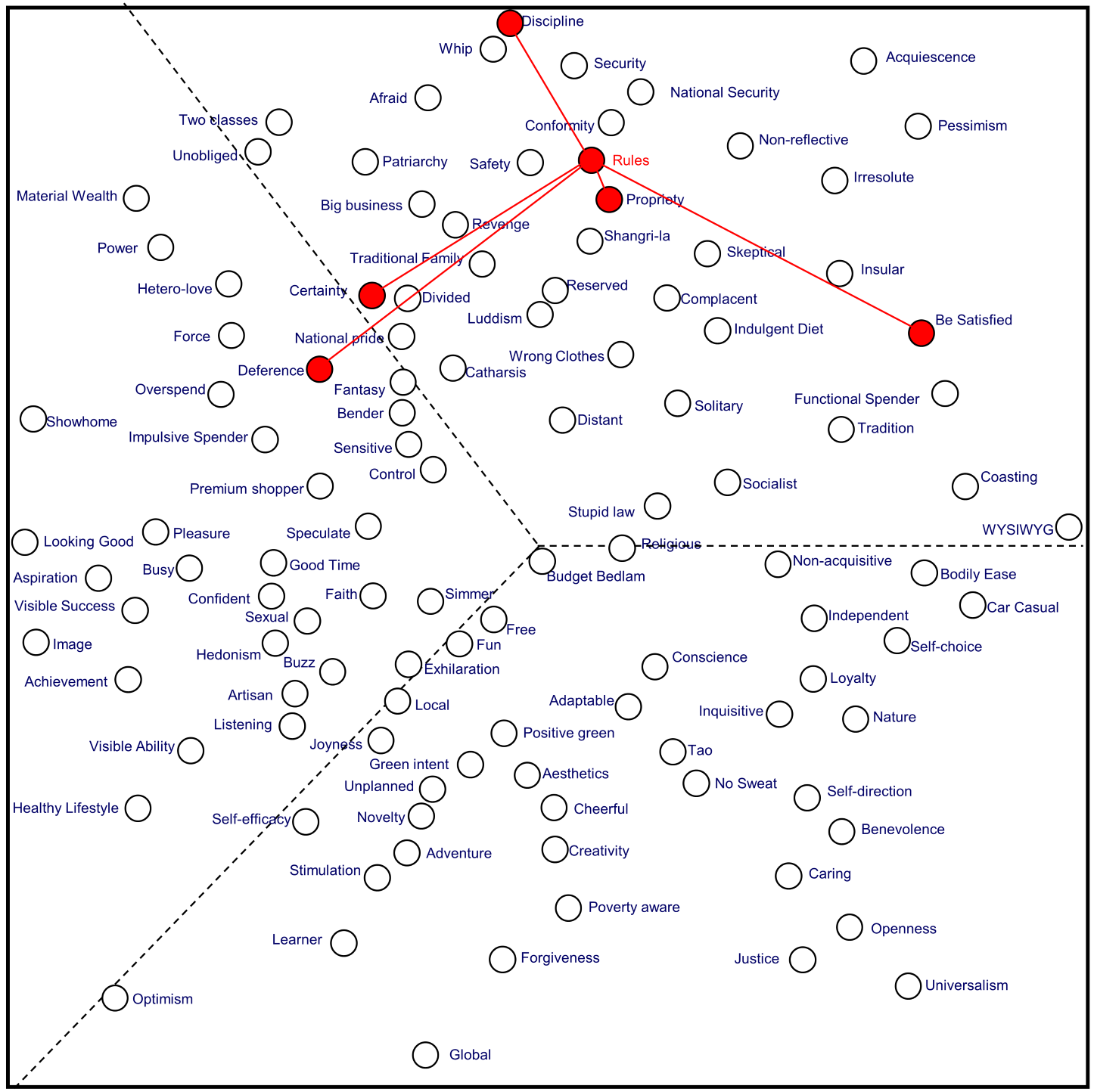

RULES
 |
I believe that people should do what they are told.
I think people should follow rules at all times, even when no-one is watching.
People who identify with this attribute are proud to conform to their community's customs, rules and styles. They like to be an integral part of small groups of like-minded people, coordinating and aligning their behaviour with those around them.
In order to align their values and behaviour, they need the rules to be clear and explicit, so that they know how to behave properly; and to know when others are crossing the line. Any sign of social disapproval triggers instinctive fears and a growing sense of danger.
Underlying this attribute is their fear of their innate instincts and the uncontrolled, unpredictable behaviour of other people. Rules help to control these natural impulses and keep them in place. By agreeing to a shared set of rules, they find it easier to control and to place limitations on their own behaviour, whilst recognising that their friends, colleagues and neighbours are doing the same.
They tend to not set the rules for themselves, but to adopt the rules followed by their parents and their peers. These internalised guidelines can provoke personal guilt, or shame, if they were to break the rules, even when nobody else knew.
One of their fundamental beliefs is that people should not only follow rules, but also do what they are told. Their ideal world is where leaders and parents are respected. And in this world, respect means that they tend todo what they are told. They follow orders and expect their orders to be followed. They tend to be authoritarian, so value obedience to a higher authority as a virtue unto itself. Authoritarian parents and leaders see their primary job to be bending the will of those in their charge, until everyone is walking in step and in harmony with each other.
It is important to know that such compliance does not always mean that such people are always moral citizens who exhibit good behaviour. The rules to which they comply could be just as easily associated with a criminal community or gang. From a broader perspective, they may be seen to be breaking the rules and laws of society, but, with regard to this attribute, the rules followed are dependent upon their peers, their role models and the leaders to which they respect. Whatever the behaviour, it will be consistent and if the rules are broken there will be consequences, such as severe prison sentences.
In order to live relatively contented lives, these people like certainty and one way to achieve this is by the setting and following of rules. They do not like to be surprised, and people who follow the rules are likely to be less surprising and more predictable. They do not like change, particularly fast change; but will accept slow, gradual behavioural change if led and advocated by leaders that they trust.
In many ways they are satisfied with their current status - which can look to non-espouser as them having low expectations. The truth is more likely to be that they are satisfied with what they already have They do not like to ask for more than they have or deserve – and whatever they have is OK with them.
Using RulesDemographic Skews: 1) Over-indexed: 65+. 2) Under-indexed: Under 35, up-markett. Rules espousers also espouse other Attributes. The top five most highly correlated Attributes of Rules espousers are, in order of the strength of relationship: 1) Certainty In total those who espouse Rules also over-index significantly on 29 other Attributes. |
|
If "Rules" (or the associated attributes) are important to you and you would like to delve more deeply, contact us at mail@cultdyn.co.uk
